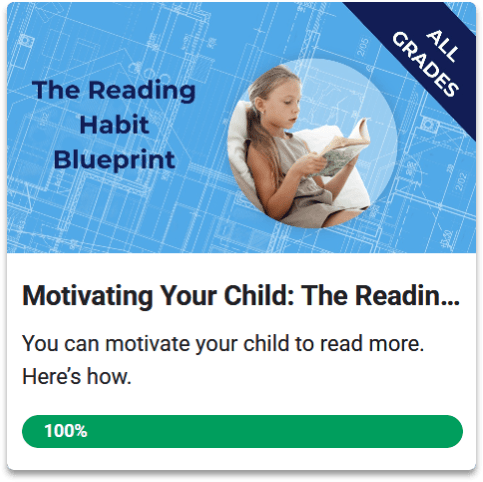- Raising Skilled Readers
- Posts
- Journey of Self-Discovery: Summer Reading
Journey of Self-Discovery: Summer Reading
Summer is the perfect time for kids to explore new places, meet new faces, and read new books.

Summer is officially here and we love everything about it: vacations, fireworks, campouts, barbecues, sports, ice cream…the list could go on and on. With all of this fun, parents can understandably find it difficult to convince kids to sit down with a good book.
As prolific reading researcher Timothy Shananan admits, “Sometimes kids just find reading to be difficult, boring, or lonely.” If that’s the case, it’s no wonder they’d rather play basketball with their friends.
However, Shananan cautions that it is important not to give up on encouraging your child to read over the summer. Why? Because sustained, independent reading isn’t just critical for academic development. It also has deep personal benefits that simply can’t be taught in a classroom setting.
When school’s out for summer, it’s the perfect time to read.
Ironically, reading alone helps students develop core social and emotional skills that change the way they see the world, other people, and themselves. Books help them discover new places and cultures, walk in others’ shoes, and ask what they might do in the same situation.
That’s right, kids: reading by yourself doesn’t have to be lonely and boring - it can actually teach you how to better connect with your neighbor the next time you get together to shoot hoops.
In the rest of this newsletter, we’ll explore what else current research tells us about reading as a journey of social and self-discovery for kids at different ages, and how parents can support that journey this summer.
In today’s issue:

Happily Ever After
When the conditions are right, according to the UK’s National Literacy Trust, young children don’t merely feel sympathy for characters in their favorite books, they actually have an “empathetic shift.” Empathy is much more than the ability to understand another’s feelings - it’s the ability to share in those feelings.
Research shows that even the youngest children can learn empathy from books, even if they are still being read to by a parent. For children learning how to read, the illustrations in great picture books, coupled with conversations about plot, characters, and emotions with a trusted adult, help them “get lost in the story.”
Use some time off to read and talk about picture books with your kids over the summer. This fun experience is a catalyst for building empathy. And best of all, it serves as unbeatable motivation for kids to read more and more as they develop.


“I am a Reader”
Sometimes kids in late elementary just need a little push from their parents to pick up a book during summer. Studies show that kids this age already know that summer reading will help them in the next school year - they just need that “spark” to find a good book and get going.
When parents actively facilitate reading, it can lead to their child’s later self-identification as a 'reader.’ As Timothy Shananan recalls, “I vividly remember my summer between 3rd and 4th grade. Mom decided it was a good idea to make me stay in after lunch to read each day. She even took me to the library to get me started. I’ve been a reader ever since.”
Our CEO, Doug Evans, had a similar trajectory. With encouragement from his family, he got hooked on the many unbelievable adventures he could go on just by reading. “As a child,” Doug explains, “reading showed me that I had more paths open to me than I first thought. Even now, books continue to inspire me.”


Expanded Horizons
Teenagers are often looking for a way out of the overwhelming pressures and realities of the modern world. Fortunately, there’s a productive way to escape for a few minutes this summer: reading.
According to neurologists, reading books is an amazing stress reliever that also boosts your brain! It strengthens critical thinking skills, develops students’ vocabulary and general knowledge, and gives them emotional resilience. As John Boyd, our Director of Instruction, is fond of pointing out, reading is the only type of escapism where you come back better than you went in.
To get all of these benefits, adolescents don’t need to read ‘capital L’ Literature exclusively. In fact, Professor Esther Jones argues that reading science fiction, fantasy, and other “outside-the-box” narratives is an effective way for teens to reexamine and reflect on the real world creatively. By exploring worlds that don’t precisely mirror our own, they gain useful new perspectives. So let them escape a little this summer.

Motivate Your Reader This Summer
Parents, we’ve laid out a blueprint for getting your child to read more! In The Reading Habit Blueprint, you’ll learn a simple but powerful model for motivating your child and inspiring a lifelong long of reading. Join our free Raising Skilled Readers parent community now to get it.
